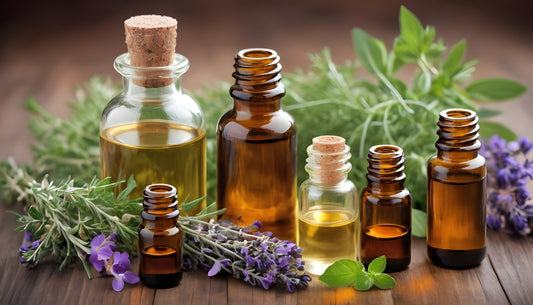
The Science Behind Aromatherapy
Davan BuschmillerShare
Have you ever smelled a specific scent and was immediately transported to a certain event in your life? That's because smell is the sense most closely in-touch with emotions and memory. In fact, according to The Harvard Gazette, "Smell and emotion are stored as one memory." This is called the "Proust effect". The Proust Effect is the phenomenon based on vivid and nostalgic memories triggered by the senses, specifically sense and taste.

Proust Effect Illustration of Marcel Proust, the individual who coined the phrase "involuntary memory" in regards to the Proust Effect.
There is profound psychological, neurological, and physiological evidence regarding these facts. Olfaction, the sense of smell, is processed by the olfactory bulb in the brain, which is located in the forebrain. This olfactory information is then relayed to the amygdala and hippocampus areas to be further processed. These two limbic areas of the brain are the main processors for emotions, memory, smell, and learning. As soon as you smell something, that olfactory information goes directly to the limbic system immediately, which is why you may suddenly remember a nostalgic event or feeling right away.
Because our sense of smell can provide us with so many fond memories and even alleviate so many negative symptoms, Full Moon Herbals incorporates aromatherapy into every product. Aromatherapy is the centuries-old "practice of using essential oils for therapeutic benefit", as described by John Hopkins School of Medicine. Essential oils are extracted from plant parts, such as herbs, trees, flowers, roots, peels, petals, bark, seeds, stems, leaves, fruits, resins, you name it! It's a form of CAM (Complementary and Alternative Medicine). Aromatherapy should be an important aspect of everyone's lives. There are endless benefits that are so easy to obtain by simply just smelling something! Aromatherapy manages physical, mental, and emotional health, making it a form of holistic (mind, body, and spirit) therapy.
Here's a list of only some of aromatherapy's many benefits:
- Reduces anxiety, headaches, stress, fatigue, nausea, depression, inflammation, and a wide array of conditions
- Eases pain and soreness
- Increases energy, relaxation
- Improves focus, digestion, mood, sleep, quality of life
- Helps fight off infection, bacteria, virus, and fungus
References:
1. “Aromatherapy & Essential Oils for Relaxation and Stress Relief.” WebMD, WebMD, www.webmd.com/balance/stress-management/aromatherapy-overview.
3. Gazetteterrymurphy. “How Scent, Emotion, and Memory Are Intertwined - and Exploited.” Harvard Gazette, 10 Jan. 2024, news.harvard.edu/gazette/story/2020/02/how-scent-emotion-and-memory-are-intertwined-and-exploited/.
4. MV;, Green JD;Reid CA;Kneuer MA;Hedgebeth. “The Proust Effect: Scents, Food, and Nostalgia.” Current Opinion in Psychology, U.S. National Library of Medicine, pubmed.ncbi.nlm.nih.gov/36863096/.


